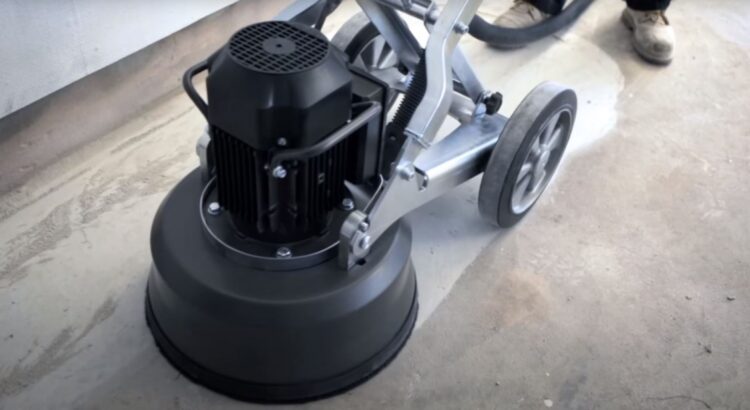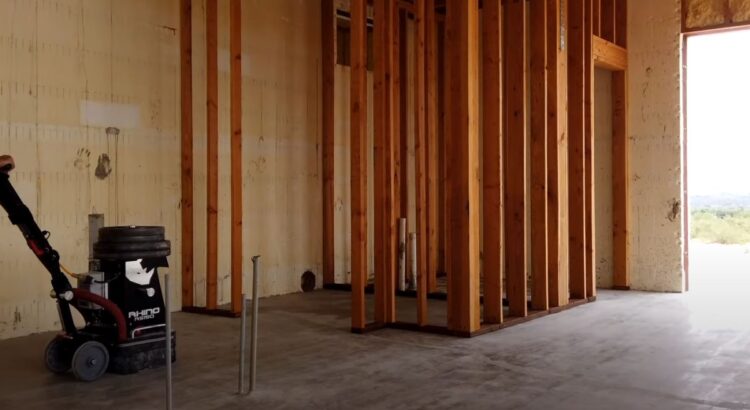Understanding Concrete Curing Timeframes
Before diving into the nitty-gritty of grinding, understanding the curing process is essential. Concrete curing isn’t just about letting the slab dry; it’s about allowing it to achieve maximum strength. Typically, a window of 7 to 28 days is considered optimal for most concrete mixes to cure before initiating the grinding process. However, the specific timeline can vary based on various factors.
Environmental Considerations: Auckland’s Unique Climate Impact
Auckland, with its humid climate, especially during summer, plays a role in the curing process. High humidity can slow down the drying process but can aid in the curing, as the concrete requires moisture to gain strength. It’s a delicate balance, as an overly rapid drying process can lead to surface cracking, while prolonged wetness can promote mould growth.
Concrete Grinding Variations Across Auckland’s Suburbs
- Auckland CBD: Given the high foot traffic, businesses opt for a quicker grind and seal Auckland services to reduce downtime. Decorative overlays, like cement based overlays, are also common to elevate aesthetics.
- North Shore: Residential areas like Takapuna or Devonport often lean towards a thorough grind, aiming for long-lasting results over rapid project completions.
Cost Implications: Grinding and Overlays
- Standard Concrete Grinding: Starting from NZD $60 per square metre, depending on the depth of grind.
- Decorative Overlays: Including cement-based overlay products, pricing hovers around NZD $90-$160 per square metre.
- Special Additives: These can range between NZD $20-$60 per square metre atop the overlay costs, depending on the desired finish.
Health and Safety: Navigating the Grinding Process
Grinding produces dust. Therefore, using a concrete surface grinder with a proper dust collection system is not just a recommendation but a standard, especially in enclosed spaces. Auckland construction guidelines emphasize worker protection, mandating the use of masks and ensuring well-ventilated workspaces.
Council Regulations: Grinding and Auckland’s Building Landscape
Various Auckland council bylaws govern the concrete grinding process, especially when it pertains to noise and waste management.
- West Auckland: In suburbs like Waitakere, there are stringent noise control measures, especially during the evenings.
- Auckland Central: Disposal of waste from grinding processes needs to adhere to specific standards to ensure minimal environmental impact.
Grinding Nuances: Achieving the Perfect Finish
Different grinding levels, from a basic grind and polish to achieving a mirror-like finish, entail varied timelines and processes. But the universal truth remains: a well-cured concrete surface ensures optimum grinding results. Concrete grinding Auckland professionals stress the importance of patience in the curing phase to ensure durability post-grinding.
Key Takeaways
- Allow concrete a curing period between 7 to 28 days for strength and durability.
- Auckland’s climate plays a significant role in the curing process.
- Costs for grinding services and overlays vary based on desired finishes and area specifics.
- Adherence to health and safety standards and council regulations is non-negotiable.
FAQs
- Why is the curing process vital before grinding?
- Curing ensures the concrete achieves its maximum strength, ensuring longevity and a superior finish post-grinding.
- How does Auckland’s climate impact curing?
- The city’s humid climate can influence the curing duration, with high humidity generally aiding the curing but slowing drying.
- What are the key considerations for grinding in residential areas vs commercial spaces?
- Residential areas often focus on long-term durability, while commercial spaces might prioritize quicker processes to reduce business downtime.
- How do professionals ensure safety during the grinding process?
- By employing equipment like concrete surface grinders with dust collectors and adhering to safety guidelines like proper ventilation and protective gear.
- Can grinding commence if the curing isn’t complete?
- While possible, it’s not recommended, as the concrete might not achieve its full strength, leading to potential surface issues down the line.
Concrete grinding, while an essential step in the construction process, is deeply intertwined with the curing phase. Ensuring the latter is done to perfection sets the stage for a seamless grinding experience. Whether you’re in Auckland’s bustling CBD or the serene suburbs of the North Shore, understanding this relationship is key to achieving concrete surfaces that stand the test of time.

